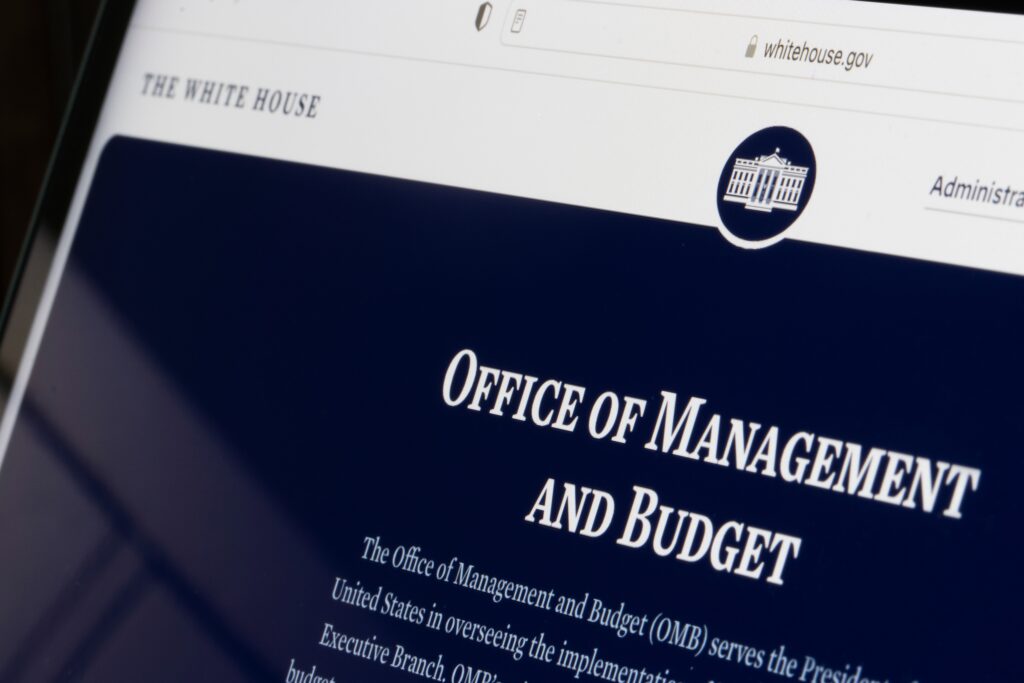US president Donald Trump has unveiled his fiscal year (FY) 2026 budget proposal, introducing sweeping healthcare cuts and significant increases to defense and border security spending.
The proposal, released on May 2, 2025, outlines a $163 billion cut to non-defense discretionary spending — a 23% reduction from 2025 levels — marking one of the most substantial overhauls of the federal budget in recent history.
According to the budget document released by the White House, if passed, the US Department of Health and Human Services (HHS) would have its discretionary funding cut by 26%.
For defense spending, Trump is proposing an increase of 13% to $1.01 trillion for FY 2026; for homeland security, the budget “commits a historic $175 billion investment to, at long last, fully secure our border,” according to the document.
The FY 2026 budget has been dubbed the ‘President’s Fiscal Year 2026 Skinny Budget.’
Related: HHS Layoffs Update: FDA, NIH and CDC Layoffs, Resignations and New Hires
Major Healthcare Cuts
Under the proposed budget, the HHS faces a 26% reduction in discretionary funding. Key agencies affected include:
- National Institutes of Health (NIH): A proposed $18 billion cut, representing the largest reduction for any HHS division
- Centers for Medicare & Medicaid Services (CMS): A $674 million decrease, eliminating activities related to health equity, outreach and education
- Centers for Disease Control and Prevention (CDC): A 44% funding cut ($3.5 billion), reducing support for chronic disease programs and domestic HIV initiatives
- Agency for Healthcare Research and Quality (AHRQ): A proposed $129 million cut
Additionally, the budget proposes eliminating the CDC’s public health preparedness programs as they “can be conducted more effectively by States,” according to the budget.
The proposed budget goes especially hard on the NIH. According to the budget document, “NIH has broken the trust of the American people with wasteful spending, misleading information, risky research and the promotion of dangerous ideologies that undermine public health.”
It points to the COVID-19 lab leak theory, DEI-related grants, “misleading information, wasteful spending and promoting radical gender ideology” as things that “undermine public health.”
As part of an overhaul, the proposal wants to split the NIH into five entities: the National Institute on Body Systems Research; the National Institute on Neuroscience and Brain Research; the National Institute of General Medical Sciences; the National Institute of Disability Related Research; and the National Institute on Behavioral Health.
The only HHS funding boost in the proposed budget is earmarked for “Make America Healthy Again” (MAHA) initiatives — such as promoting nutrition and exercise — spearheaded by HHS Secretary Robert F. Kennedy, Jr. (RFK Jr.). These programs would receive $500 million in 2026, and MAHA will absorb several existing agencies under RFK Jr.’s proposed restructuring of the HHS.
Medicaid Overhaul
A central component of the budget is the proposed $880 billion reduction in Medicaid spending over the next decade.
House Republicans have introduced legislation to implement new work requirements and entitlement reforms, potentially affecting 8.6 million Americans. Critics argue that these changes could lead to significant coverage losses.
The budget includes $2.67 billion in cuts to programs supporting LGBTQ+ communities, affecting health research, HIV/AIDS support services and non-discrimination protections.
Mental health services are also targeted, with over $1 billion in proposed cuts to the Substance Abuse and Mental Health Services Administration (SAMHSA).
The proposal outlines a significant reorganization of the HHS, consolidating 28 agencies into 15.
The reorganization plan also entails a workforce reduction of approximately 20,000 positions, significantly impacting federal health agencies.
Budget Response
The budget’s passage remains uncertain, with negotiations expected to continue in Congress.
The proposed budget has sparked intense debate. Supporters argue that the cuts are necessary for fiscal responsibility and to reduce government overreach.
Republican congressional leaders said the budget would strengthen the government’s fiscal responsibility.
Speaker of the House Rep. Mike Johnson, R-La., said the plan “ensures every federal taxpayer dollar spent is used to serve the American people, not a bloated bureaucracy or partisan pet project.”
Opponents contend that the reductions will harm vulnerable populations and undermine public health infrastructure.
In a statement, the Federation of American Hospitals’ president and CEO, Chip Kahn, warned Congress to “tread carefully as it considers drastic Medicaid cuts that would eliminate millions of Americans’ coverage and access to care,” as it attempts to overhaul the country’s healthcare infrastructure.
“The budget, Congress’s proposed Medicaid cuts and the impending expiration of the enhanced tax credits should be considered as a whole with the health of our communities, patients’ coverage and hardworking Americans’ access to care at the forefront,” he said.
United for Medical Research (UMR) blasted the almost $18 billion in cuts to the NIH.
“The cuts proposed to the National Institutes of Health budget are shocking and would be devastating to the NIH, researchers doing groundbreaking work, patients and families hoping for cures and America’s economy,” UMR said in a press release.
“If they were to occur, the United States would be giving up our global leadership in biomedical research to competitor nations along with all the benefits our leadership brings to US citizens, our economy and our national security,” the organization said.
The proposed budget is in line with RFK Jr.’s restructuring plan for the HHS initiated in April 2025. The plan kicked off with a significant workforce reduction, resulting in approximately 10,000 layoffs across the CDC, FDA and NIH. RFK Jr. later said some of the job cuts had been made in error and would be reinstated.
If you want to have your organization featured on Xtalks, please email Ayesha Rashid at: [email protected]












Join or login to leave a comment
JOIN LOGIN